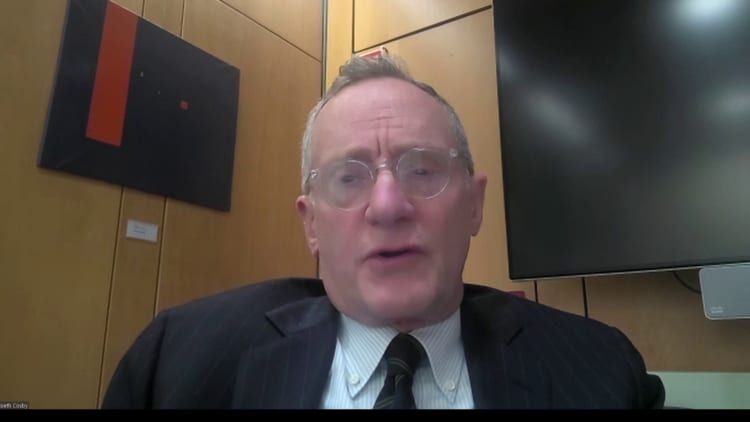
The Federal Reserve will not bring interest rates back down to their post-financial crisis lows, according to veteran investor Howard Marks — and he believes that’s a good thing.
“The U.S. economy is doing quite well, and so it’s not clear that it requires stimulus,” Marks told CNBC’s Frank Holland on Tuesday.
The current federal funds target rate of 5.25% to 5.5% is an “emergency measure designed to cool off the economy and inflation,” Marks continued.
“One of these days we’ll declare victory against inflation, and the Fed will take rates down to something moderate and sustainable. I think that’s in the threes.”
The Fed pulled rates to near-zero through 2007 and 2008, before taking them slightly higher between January 2016 until the Covid-19 pandemic. Between 2009 and 2021 the federal funds rate averaged 0.5%, Marks said.
“My thesis is, we’re not going back there to rates of zero, or a half, or one. I think that that is unnecessary stimulus, and I don’t think permanent stimulus is a good thing,” he said.
“I think that interest rates should most of the time be set by the free market. That is to say the negotiations between borrowers and lenders, as opposed to having a central bank tell people what the rate should be. So I hope we’re going back to that climate.”
Howard Marks, Co-Chairman, Oaktree Capital, speaks during the Milken Institute Global Conference on October 19, 2021 in Beverly Hills, California.
Patrick T. Fallon | AFP | Getty Images
There are “significant ills” in holding rates too low and creating a “permanent posture of stimulus,” he added.
Marks argued in a series of notes published in 2023 that low rates over the 13 years following 2008, skewed the behavior of participants in the economy and markets, calling the period “easy times, fueled by easy money.”
The impact of such ultra-low rates includes over-stimulating the economy and fueling inflation; making risky assets more attractive than they should be, with insufficient compensation for the increased risk; and causing too much fluctuation in the availability of capital, Marks said in January.
He told CNBC Tuesday that the new environment should see credit play an “important part in most people’s portfolios.” Investors “got out of the habit, because the yields on credit instruments were so low. Today, they’re very healthy, and they can provide a very solid foundation,” he said.
Marks’ own firm, Oaktree Capital Management, specializes in investments in distressed securities.
“When you talk about rates being higher than they have been for the previous 14 years, that’s an advantage that we enjoy today. Investors in sub-investment-grade credit instruments — high yield bonds, senior loans, mezzanine finance, etc. — today can get interest rates that approach or exceed the historic average return on equities, which is about 10%,” Marks said.
“And I think the ability to get equity-type returns from investments that offer contractual returns in that vicinity is a tremendous advantage that we did not enjoy for that whole low rate period. So, you know, we’re very excited about the future for the things we do.”
Credit: Source link













